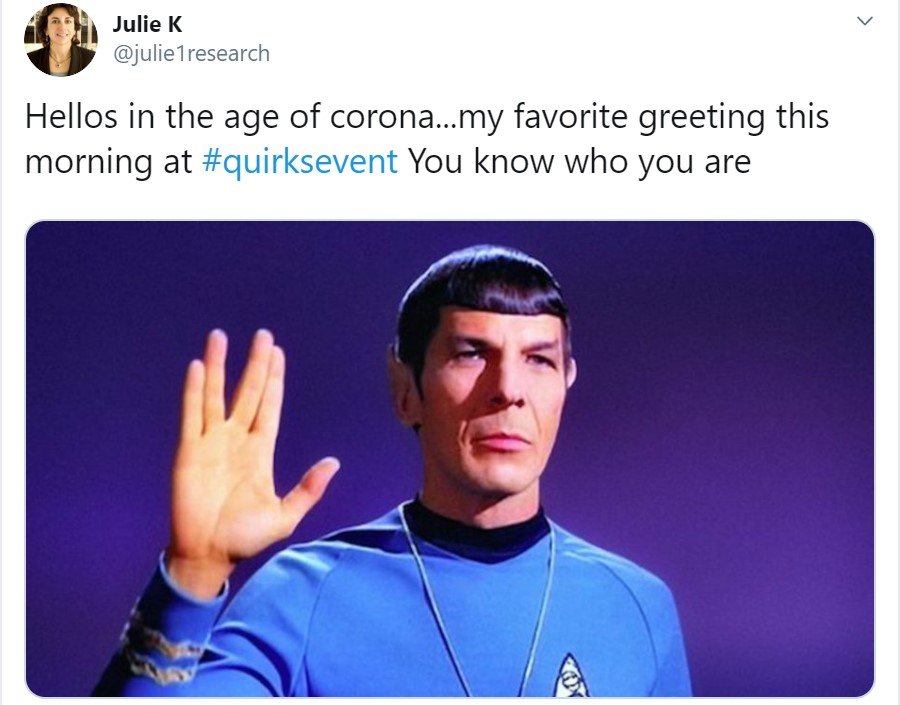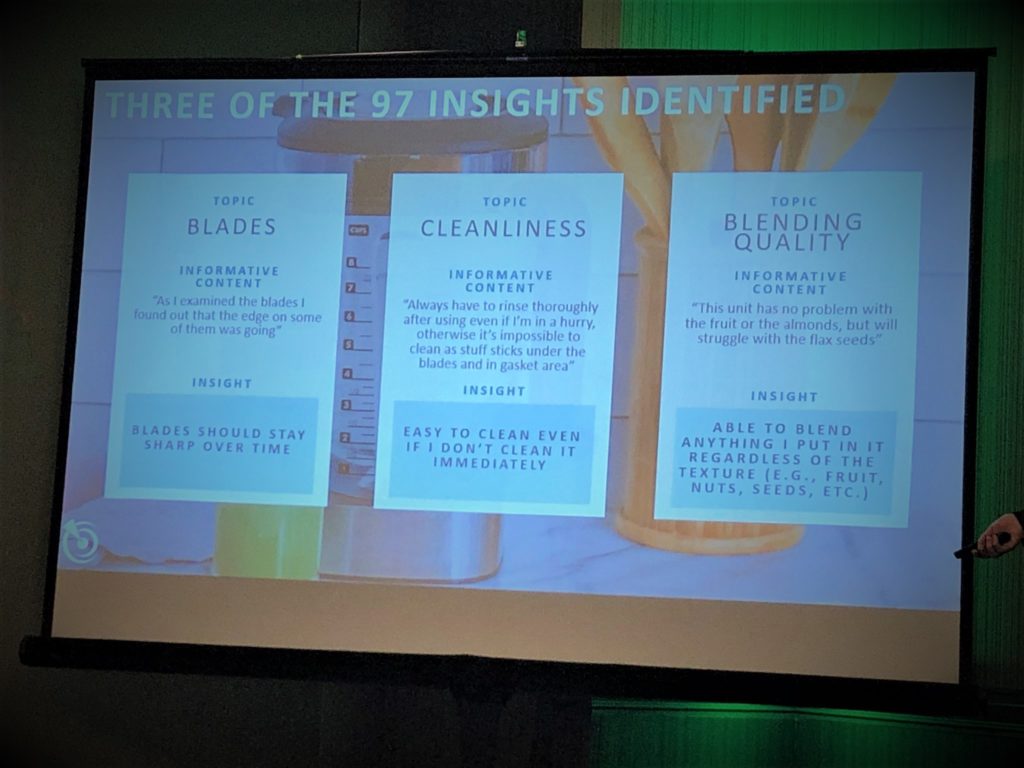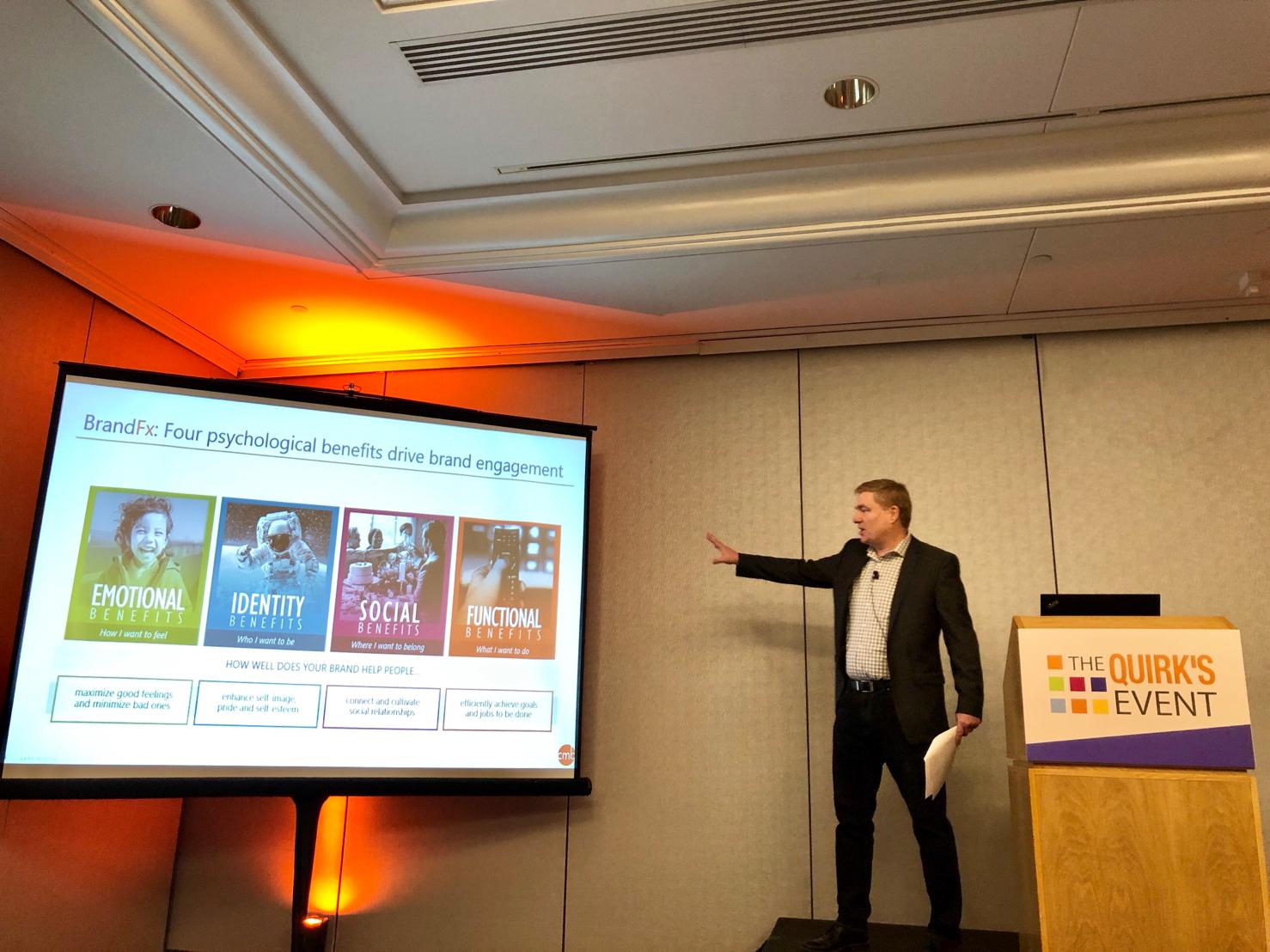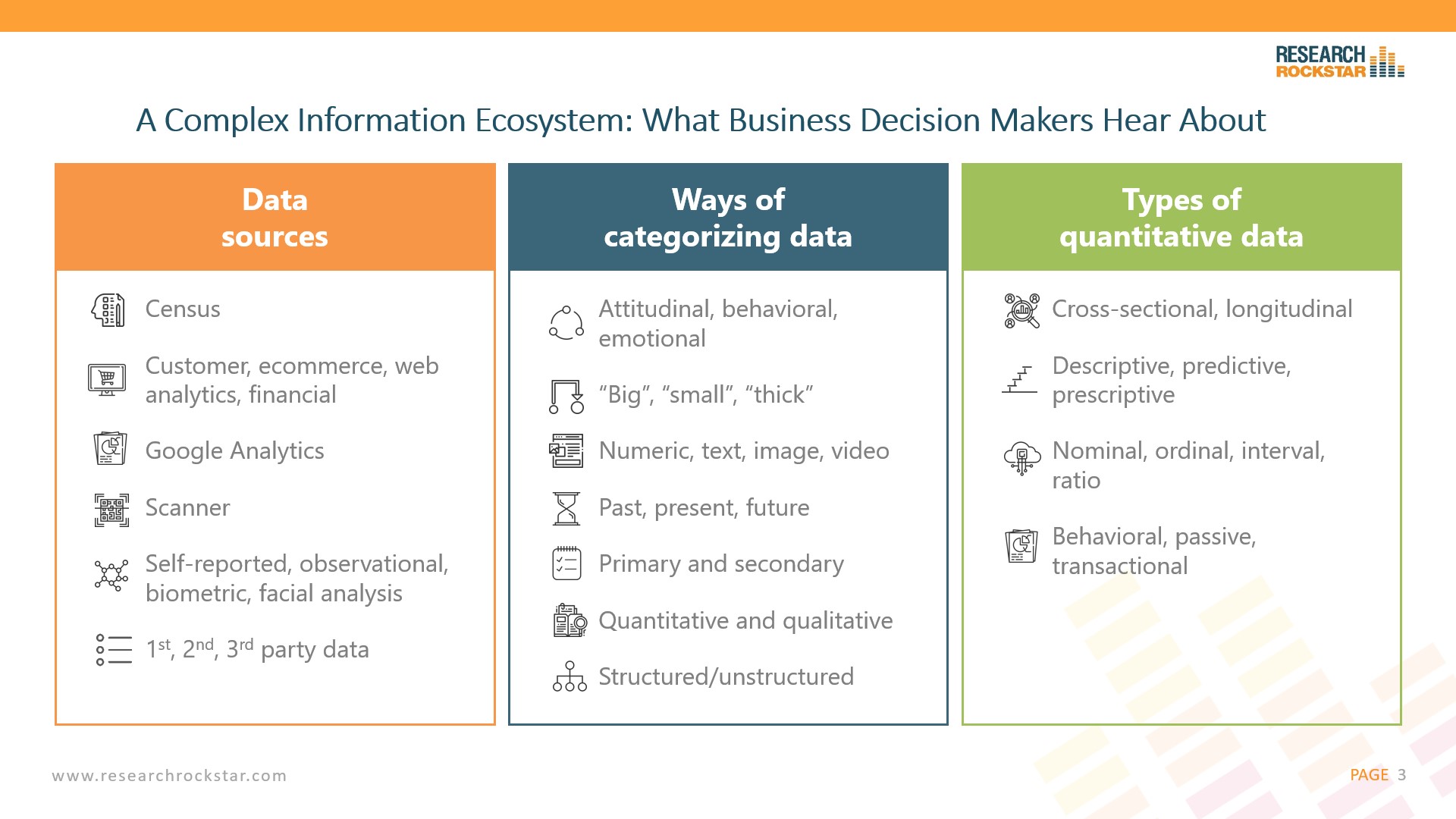It’s about a 3 min. read.
Conference attendance looked a little different at last week’s Quirk’s event. We’re used to shaking hands, hugging, standing close in crowded rooms, and yes, sometimes even sharing food and drinks. That was all before the rising awareness of COVID-19*. My favorite greeting was the ‘spock’ hello, which to my surprise, my tongue-in-cheek post on Twitter earned much attention. While we awkwardly navigated the new cultural morays of greetings, and depleted Dynata and WebMD’s hand sanitizer gifts (thank you), we did manage to listen to some great sessions.

In the most recent GRIT Innovation survey, Bex Carson of Brandwatch said “your next standout researcher is a mathematician & storyteller, scientist & artist, code-breaker & journalist.” We saw a lot of that type of broad thinking here at Quirk’s:
- Marc Goulet (Russell Research) and Tanya Pinto (Microsoft) spoke about applying a ‘human lens’ to predict what’s next. They urged us to focus on what people value and reject a culture that values primary research over other forms of discovery. Ultimately, we can broaden and deepen our view as researchers by taking a journalistic approach to data collection and storytelling, increasing our ability to quickly combine and integrate data sets, and looking for adjacencies and patterns (quant, qual, ethno, social, telemetry). While the challenges for insights professionals are complex, Goulet and Pinto’s session provided a much-needed reminder to focus on multiple inputs in business thinking.
- Carmel Dibner from Applied Marketing Sciences spoke about using Machine Learning as a precursor to primary research. Her convolutional neural networks yield ~2,000 sentences from several million so you can harvest and work from there. ML is faster (processing power), better (overcomes human bias), cheaper, complete (comments from thousands), easier (machine does the work) and relevant (insights at the moment of truth). She shared an example of how machine learning informed product development, and marketing of blenders (mainly because blenders had great sub-types around aesthetics, ergonomics, technology, cleanliness, performance, brand). The machine worked with 18,000 sentences, and from there, machine learning experts identified the sources, trained the algorithm, ran the machine, produced the output and conducted the analysis. In this case, the machine distilled a massive amount of information into 97 unique insights, translated directly into consumer needs. On average, Applied Marketing Science finds there’s between 30-100 needs that can be uncovered in these explorations, providing a fertile hunting ground informing primary research.

- In his Brand Disruption presentation, CMB’s own Mark Doherty spoke about how it’s impossible to build consumer-centric brands with brand-centric research. Using our latest BrandFxSM study, he described the four psychological benefits that brands must provide to drive consumers: Functional, Emotional, Identity, and Social. As consumers become increasingly empower, and industries more fragmented, it’s critical to focus on how brands help people enhance what matters to them, including their self-image and pride, as well as the aspects that connect us.

- Finally, at Quirks, we pondered some of the holes in our own information vocabulary and knowledge. For those who really want to understand our increasingly complex information ecosystem, it’s time to listen to Kathryn Korostoff, founder of Research Rockstar. Kathryn broke down the myriad types of data sources, ways of categorizing data, and types of quantitative data. When highly-seasoned researchers are walking out of the room saying ”oh my gosh I use ‘first vs second party data’ imprecisely,’ it’s clear that there’s always room to learn.

Whether you’re laying low, or still traveling, the lifelong journey of learning never ends. Contact us to set up a virtual conversation.
*Check out this
Forbes article, featuring insights on consumer behavior from our own Erica Carranza, Ph.D., VP of Consumer Psychology.



